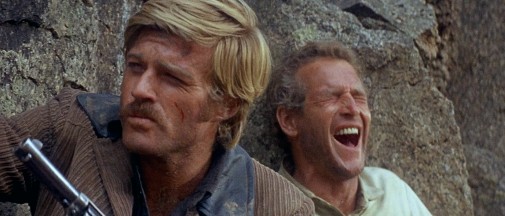
From 1944 to 2008, we had a five-wide Best Picture race in the Oscars, as well as four acting categories. During those years, it became rare for a movie to score a Picture nomination without also nabbing some sort of acting nod. It was especially unusual for the majority of a given line-up to be devoid of acting nods, happening only three times during those 65 years. One of those times was the 1969 Academy Awards, when Z, Hello, Dolly! and Butch Cassidy and the Sundance Kid didn't get any love from the acting branch. Considering the general bias against "foreign language" performances and the horrible reviews of a certain musical, it's easy to understand why the actors of Z and Hello, Dolly! went unrecognized. But what about the revisionist western in the bunch?…
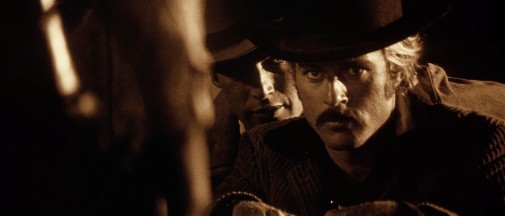
Starring two of the hottest male leads of their time, George Roy Hill's Butch Cassidy and the Sundance Kid was a major triumph. By the end of 1969, it topped the box-office, crowning itself the greatest hit of the year. Part of that success is due to the picture's sheer quality and audacity. We must understand that 1969 was a year when the studio system's cadaver finally decomposed into oblivion while the New Hollywood gave its first signs of life. In that context, this western was a necessary meeting point between past and future, a romantic reminiscence about the westerns of yore that was also full of youthful irreverence. For more information regarding that matter, go read our in-depth look at the 42nd Academy Awards.
That said, neither Hill's directorial ingenuity or William Goldman's screenplay would have been able to achieve that sort of popularity by themselves. Butch Cassidy and the Sundance Kid lives and dies with the two men at its center, a couple of roles that demand the presence of immortal movie stars. Thankfully for everyone involved, the picture has two such icons as its leads. Even better, Paul Newman and Robert Redford are great actors too. While it's true that Newman might be more widely regarded as a consummate thespian, Redford is no slouch, always able of sculpting his star persona into precise variations that match the requirements of his characters.
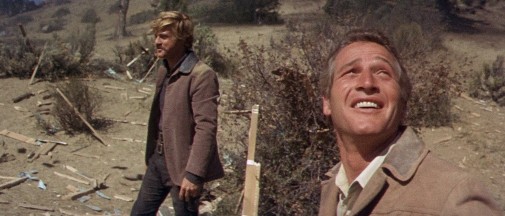
As the titular outlaws, they nail the chemistry between the men with effortless perfection. That's crucial because, despite all its shootouts, Butch Cassidy and the Sundance Kid is, at its heart, a buddy comedy that needs the audience to believe that its titular characters are great friends that would die rather than be separated, two halves of the same coin. The repartee both actors build with each other feels natural and lived-in, selling that idea of unshakeable friendship and loyal devotion so completely that it isn't hard to find homoerotic dimensions in the relationship. They're also great fun to be around, effectively seducing the spectator into wanting to spend time simply observing these guys be themselves.
Chemistry and charisma go a long way, but we shouldn't reduce their performances to just that. This is a film with an unstable tone balance that's always swerving between lightheartedness, robust romance and sorrowful tragedy, forcing its actors to be in a constant negotiation with the audience, their scene partners and the camera. Redford, in particular, has great challenges since the Sundance Kid spends a great part of the film in the background of scenes that are dominated by Newman's Butch. The actor must be a figure of powerful menace looming behind his partner. However, that dangerous quality can't be overplayed or the public might start to question the movie's lionization of two unrepentant criminals.
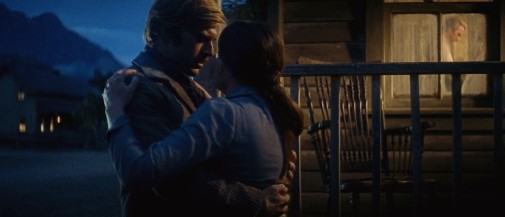
Redford is always ready with a wry smile or a bit of comic mugging, diffusing the tension while maintaining his threatening pose. His first scene with Katharine Ross' enamored schoolteacher is particularly great at showcasing that aspect of his work, marrying playful seduction with a sense of genuine danger. Paul Newman, on the other hand, gets to showboat a lot and does that with his usual panache, making for the most charming train robber that's ever lived. When playing the polyamorous dynamic that develops between himself, Redford and Ross, Newman is particularly great at showing the ease with which the trio shares their affections. It never feels like an emotionally strained scenario but it doesn't come off as unearned either.
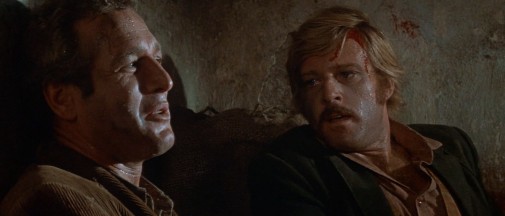
The peak of their performances comes with the fatalistic conclusion of the story when the two companions must face their certain death. Both actors have planted seeds of humanity here and there, be it Redford's frustrations with his partner's plans or Newman's guilt at the act of killing. However, nothing compares to what they must do in these final moments, playing two men who know this is the end and are trying to talk themselves into acceptance. When they speak of future Australian getaways, neither Butch or Sundance are kidding themselves or tricking the audience, they're just resolutely trying to confront their fate with hope instead of panic. Like Thelma and Louise, they do it in a blaze of glory, frozen in time.
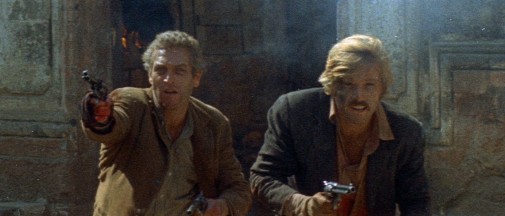
In the end, despite great performances, Redford and Newman suffered from there being two other male leads in a cowboy-themed Oscar favorite of 1969. It's unlikely the Academy would have given a pair of double nominations in the Best Actor category, so the men of Midnight Cowboy got the recognition instead of these joking outlaws. Still, it wouldn't have been unjust to have Butch Cassidy and the Sundance Kid in the line-up. See for yourself, as the film is new to streaming on Starz, and tell us if you would have nominated them.